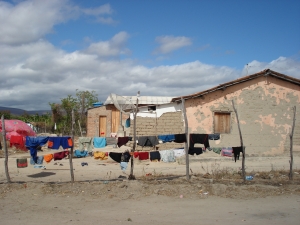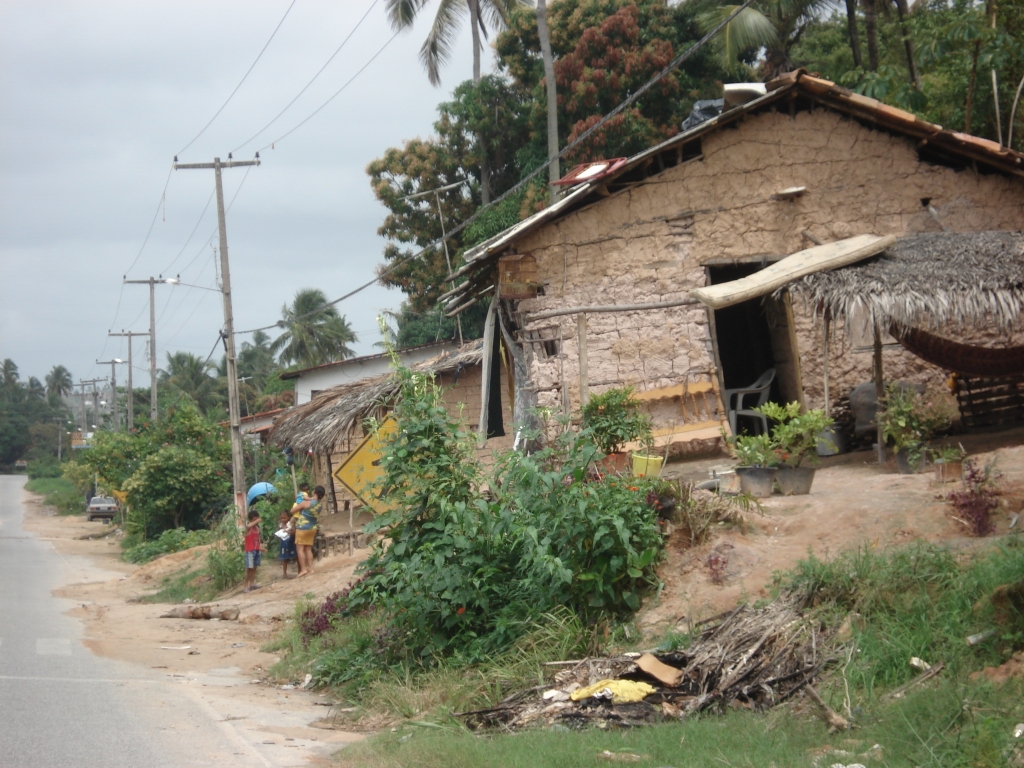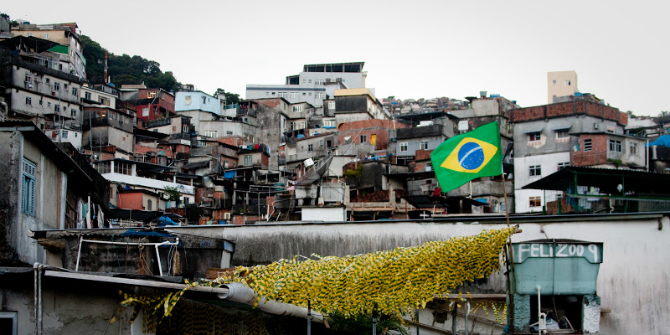The Bolsa Família Programme, a conditional cash transfer scheme implemented by the Brazilian government, has succeeded in lifting people out of poverty in the last decade. In this post, Alessandro Pinzani complicates this picture by proposing that, while Bolsa Família beneficiaries gain opportunities for personal development, there is a lot to be done to mobilise them for political empowerment.
Many studies analyse the economic impact of the Bolsa Família Programme (PBF) and evaluate it on the basis of its ability to help poor people break the vicious cycle of poverty and to reach some economic stability. My colleague, Walquíria Leão Rego, and I decided to study its effects on the subjectivity of its beneficiaries, from the point of view of their individual autonomy and their political conscience. After interviewing some 200 women over five years (2006 to 2011) we concluded that the PBF is actually opening up life chances that might help individuals to become increasingly autonomous, though of course there is no guarantee that this will happen. Our conclusion however was more troubling with regard to the development of political conscience.
 Most women expressed the opinion that the PBF was “a favour from the government” or even “a gift from Lula”, while only five claimed the allowance as their right. Almost all said that they voted because they must (voting is mandatory in Brazil), while the vast majority expressed a very low opinion of politics and of politicians, with the exception of President Lula (but some women did not like him nevertheless). On the other hand, they generally recognised that, while their vote would not change things at the local level, casting their ballot in the presidential election could influence the government’s politics towards poor people. Many expressed the fear that a president from another party would extinguish the programme and almost all claimed that no other government had taken their suffering seriously before.
Most women expressed the opinion that the PBF was “a favour from the government” or even “a gift from Lula”, while only five claimed the allowance as their right. Almost all said that they voted because they must (voting is mandatory in Brazil), while the vast majority expressed a very low opinion of politics and of politicians, with the exception of President Lula (but some women did not like him nevertheless). On the other hand, they generally recognised that, while their vote would not change things at the local level, casting their ballot in the presidential election could influence the government’s politics towards poor people. Many expressed the fear that a president from another party would extinguish the programme and almost all claimed that no other government had taken their suffering seriously before.
What dismayed us was their almost absolute lack of coordination and political activism. This might be explained by the fact that we focused on the rural poor, whose condition is very different from that of the urban poor. Most families that we visited lived in isolated places or in very small towns, far from the seat of the municipal government, and scarcely communicated with other participants in the PBF. Generally, they were not organised in local comunidades, as people in the favelas of Rio de Janeiro or São Paulo tend to be. However, they were neither uninterested nor unwilling in participation in political organisations.
Once, in the town of Itinga (Valley of the Jequitinhonha River), we participated in a meeting, summoned by our local contact after we had finished our interviews, so that we might meet more participants in the programme—mainly women, but some men came too and entire families showed up. Most thought the Federal Government had sent us to hear their complaints. We explained that we were just social scientists, but they continued nevertheless to report on personal experiences of what they considered the injustice and unfairness of the PBF local manager and of the mayor. At first, we listened to their litany of angry complaints and of bitter reciprocal accusations (“Why did you get the Bolsa and I did not, if you have a job and I am jobless?” “You are friends with the mayor; that’s why you got it immediately and I am still waiting”). After a while, we proposed that they collect the complaints against the PBF manager and the mayor and submit them to higher authorities. Some women immediately agreed and suddenly began advancing ideas concerning other common political activities. True, some women already had experience in self-organisation, running a cooperative that baked polvilho cookies and sold them to markets from neighbouring towns like Araçuaí. However, now they were talking about politics. When we left, a bunch of quarrelling individuals had become—at least for the time being—a politically active group.
This story shows how things could be, if the participants of the PBF were brought together to share their personal experience and to take up collective action. Unfortunately, this does not happen for several reasons. First, the local political authorities do not have any interest in mobilising their constituents, who could organise to hold them accountable for their mismanagement. Second, the participants themselves do not realise the importance of organising to gain political strength and better claim their rights. Third, even if they had this knowledge, they often lack the expertise to organise efficiently. External agents could counter these three factors by acting as catalysts, as we happened to do by chance when we proposed that they collect their complaints. Whether this is desirable and whether this should be a task for NGOs, political parties, or the Federal Government itself—these are questions we must leave here open.
Featured image credit: Senado Federal (CC BY 2.0)
Post images kindly provided by the author.
About the Author
Alessandro Pinzani is author, with Walquíria Leão Rego, of Vozes do Bolsa Família (São Paulo, 2013).
The views expressed on this post belong solely to the author and should not be taken as the opinion of the Favelas@LSE Blog nor of the LSE.
Please read our comments policy before commenting.






Pinzani,
Thanks for this post and for the work you have done on this subject. I have a question for you:
Does the PBF have a system to assess the other positive results not only economic or political, for example, educational?
Darlei,
the Ministry of Education (MEC) has a data-base for surveying the only thing you can assess on a quantitative basis, namely: school attendance by children from families participating in the PBF (this is, as you probably know, one of the two conditions to maintain the allowance along with the duty to vaccinate the children). As far as 2014 the data were very good: school attendance was well above 90%, in most states over 95%. But of course it is very difficult to evaluate the quality of the education these children are getting, particularly in rural areas or in poor municipalities. There are studies on this topic (some of them are available on the site of the MEC itself), but – as far as I know – none of them results from a real nationwide survey on the quality of teaching in Brazil.